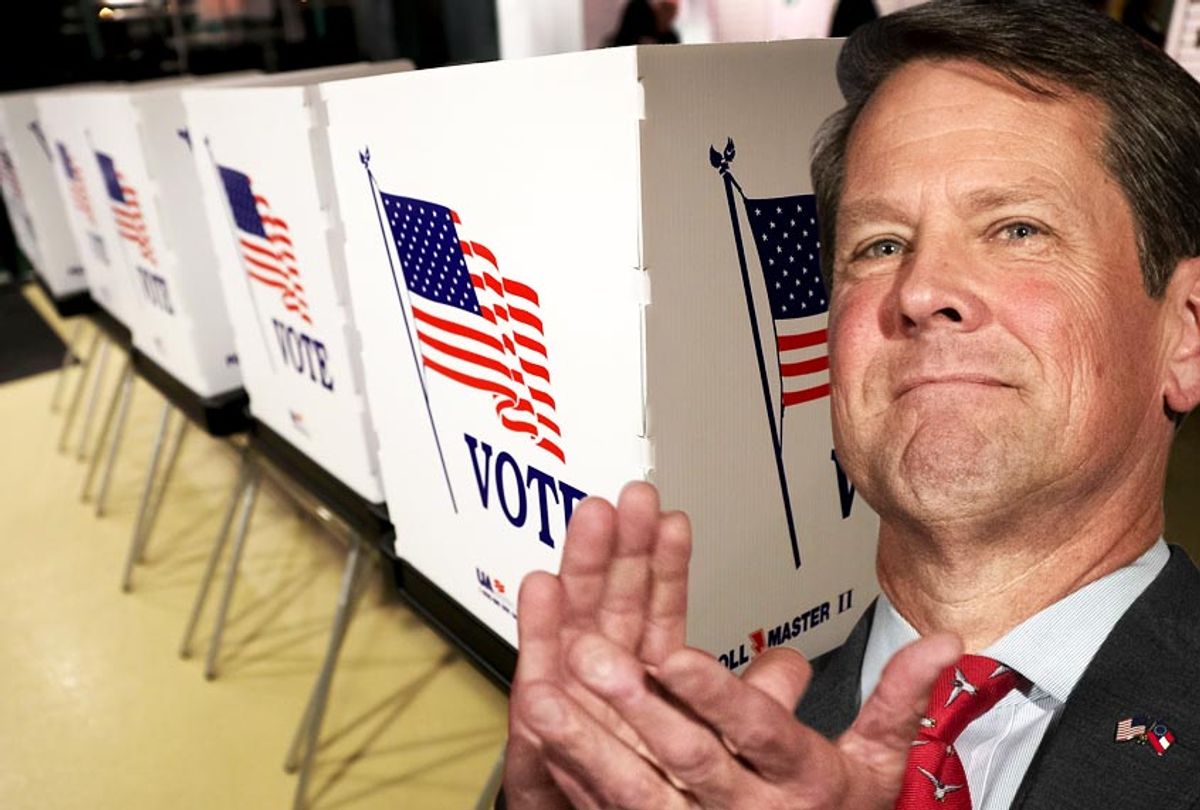Georgia Secretary of State Brian Kemp has announced that he is resigning as the governor's race between himself and his Democratic challenger, former State House Minority Leader Stacey Abrams, remains too close to call.
The secretary of state's office announced that the resignation would become official as of 11:59 AM on Thursday, according to CNBC. Although Kemp's resignation means he wouldn't certify the state's votes once an official winner is declared, it does not address the fact that thousands of voter registrations were put on hold, massive voter purges occurred and technical problems required voters to stand on long lines on Election Day — all factors that could have cost Stacey Abrams the election. Her main hope now is that, when the final votes are counted, Kemp's total falls under 50 percent of the popular vote; if that happens, an automatic runoff will take place.
"Number One, Brian Kemp should have resigned as Secretary of State before he purged half a million Georgians, before he told the counties not to even hand out provisional ballots to people he had wrongly purged," Greg Palast, a journalist who created a website to help Georgia voters determine if they had been purged from the rolls, told Salon. "Two, he should have resigned before he started enforcing a system of exact match and other gimmicks that have basically suppressed the votes by literally the hundreds of thousands. To now to just come up with a gimmick like putting one of his flunkies in charge, a political hack in charge to replace him, is hardly blessing the election as fair and democratic."
When asked if Abrams would have had an easier chance of forcing a runoff against Kemp or even being outright elected had Kemp not used his office to wrongly purge voters, Palast emphatically insisted that this was likely the case.
"When you are removing — and my count from my experts is that we know that 340,134 people were absolutely, positively wrongly removed for moving who never moved at all — that's not the entire sum of people wrongly purged," Palast told Salon. "They don't all vote, okay? They don't all vote. Figure a third. Low-frequency voters. Even if 100,000 voted, we're looking at what, maybe, 50,000 provisional ballots? We don't know. Kemp won't even tell us."
He added, "If you do look at the numbers, it's impossible to imagine that Abrams wouldn't have won outright if everyone who is entitled to vote could vote. If all the provisional ballots are counted, if all the absentee ballots are counted, I don't have any doubt about what the outcome would be or would have been."
Before the election, former president Jimmy Carter also called on Kemp to step down as Georgia secretary of state, arguing that "in order to foster voter confidence in the upcoming election, which will be especially important if the race ends up very close, I urge you to step aside and hand over to a neutral authority the responsibility of overseeing the governor’s election. This would not address every concern, but it would be a sign that you recognize the importance of this key democratic principle and want to ensure the confidence of our citizens in the outcome."
Abrams' campaign estimates that she would need to gain about 15,000 more votes to force a runoff with Kemp, according to the Associated Press. Kemp's campaign meanwhile insists that that would be mathematically impossible since only 22,000 ballots remain uncounted, although the Abrams campaign believes there could be more. Meanwhile, The Washington Post estimated that Abrams and the Libertarian candidate would need to gain about 25,000 more votes to force a runoff.

Shares